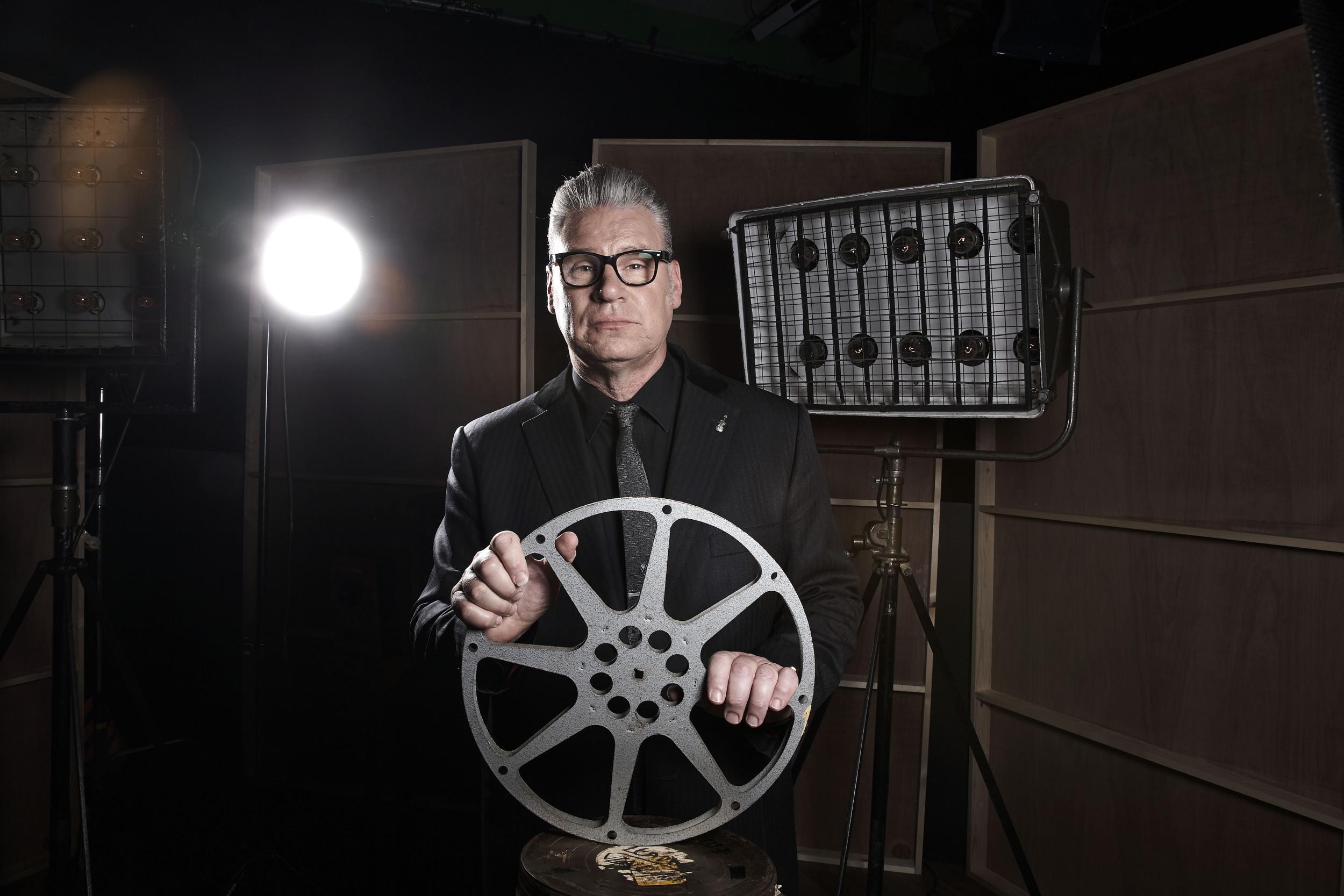TV review, £10k Holiday Home: can Julia Bradbury find paradise on Earth for a four-figure sum?
Plus: Mark Kermode's Secrets of Cinema (BBC4)

Your support helps us to tell the story
From reproductive rights to climate change to Big Tech, The Independent is on the ground when the story is developing. Whether it's investigating the financials of Elon Musk's pro-Trump PAC or producing our latest documentary, 'The A Word', which shines a light on the American women fighting for reproductive rights, we know how important it is to parse out the facts from the messaging.
At such a critical moment in US history, we need reporters on the ground. Your donation allows us to keep sending journalists to speak to both sides of the story.
The Independent is trusted by Americans across the entire political spectrum. And unlike many other quality news outlets, we choose not to lock Americans out of our reporting and analysis with paywalls. We believe quality journalism should be available to everyone, paid for by those who can afford it.
Your support makes all the difference.If you’re an idiot, or given to envy, or both – a toxic combination – then you really don’t want to be watching ITV’s latest vehicle for Julia Bradbury, £10k Holiday Home (ITV). Ms Bradbury, I had thought, was just a rambler, by which don’t especially mean her style of commentary, but her telly speciality subject, that being walks in the countryside, hikes around hills, that sort of thing. I hadn’t realised that she was so versatile that she can do a property show too. Well done, Julia.
Anyway, as the old saying goes, a fool and their money are soon parted, and I found myself mesmerised by the holiday home bargains she was reviewing. A home for £10,000 or so, with a realistic budget closer to £7,500, leaving aside an allowance for work, if necessary. It certainly drew me in. Here we watched Julia wandering around Portugal, exploring photogenic villages in Portugal, close to national parks and hiking country, naturally, a bit run down, yes (the real estate, not Julia, obviously), but there for the price of a two-year old Ford Focus, or about one-twentieth of what something similar might cost you in the UK (the real estate, not Julia, again obviously).
She was careful. One delightful cottage was on the market for a tempting £8,000 or so but would need another £25,000 spending on labour for renovation – so ruled it out. Then there were a few sequences on what fun you can have on the Bulgarian Black Sea coast for next to nothing, with one very happy couple showing us around their lovely little two bedroom detached home, complete with unusual external staircase.
Eventually Julia settled in on “the little blue house”, and end of terrace in yet another delightful spot in northern Portugal, next to vineyards that are 2,000 years old and with magnificent views of verdant valleys and gently undulating hills. Could paradise on Earth, with an apparently sound roof, be secured for a mere four-figure sum?
We’ll see in the coming episodes, but a few things, as yet unsaid, started to worry me. First, there is the small matter of upkeep of your possibly crumbling pied a terre – plus overheads such as utility bills and property taxes, as well as capricious planning rules and neighbours that can be as troublesome as any to be found at home. What happens if you get squatters?
Second, with the UK heading for the harshest of hard Brexits, I couldn’t quite be confident that property taxes and expatriate property rights will be as protected as they are today. As fellow EU members our relationships with the likes of Bulgaria, Croatia and Portugal might gradually evolve, to the detriment of equal treatment for British citizens. On the other hand I guess you could see a property valued in euros as a modest hedge against the UK property market slumping, but not much of one. For the dedicated Europhile, it’d be somewhere to emigrate for when Nigel Farage gets in to No 10.

An alternative, also covered in the show a little incongruously, is to find an old camper/van/caravan/bus and convert that into a holiday home, albeit without much in the way of conveniences. There was a bloke who wanted to turn a £100 caravan into a slice of gratuitous ersatz Americana, for which he automatically earned my undying contempt. Maybe there’s a place for that sort of thing, but not here.
In any case, I still feel queasy about the “second home” thing arriving in areas that are patently not rich, and thus pricing local families out of much needed accommodation. This is what has happened, all too grievously, in trendy gentrified places such as Cornwall and North Norfolk, for example, and I don’t see why such a fate should be visited upon struggling rural communities on the content either. The Sons of Glyndwr used to have a way of discouraging outsiders from acquiring patches of rural Wales, and we wouldn’t like to see a return of that anywhere, now would we?
Julia did, conscientiously, want to find out what her new Portuguese neighbours made of the interloper, and was relived to find them welcoming, on the grounds that their village was depopulating and it was nice for them to have the company. But you’re not really moving in and revitalising the community if you’re only going to spend a few weeks a year there? The most you’ll inject into the local economy is a couple of grand on builders, groceries and those cute custard tarts they do. Your kids won’t be going to school there, and you won’t be using many of the local services and businesses.

Watch Apple TV+ free for 7 days
New subscribers only. £8.99/mo. after free trial. Plan auto-renews until cancelled

Watch Apple TV+ free for 7 days
New subscribers only. £8.99/mo. after free trial. Plan auto-renews until cancelled
You’re a tourist, albeit one of fixed abode. Which brings me to the unspoken downside left out, thus far, in Julia’s quest: might you get a little bored by going to the same place for your hols, year in, year out? Just a thought. Yet…I keep thinking about the idea, because… because I’m just acquisitive, and like the idea of buying a home on a credit card or overdraft. Envy and idiocy are as powerful as they are insidious. I may yet succumb. Obrigado and goodnight.
Now, I make no apology for mentioning once again the gem-like Mark Kermode’s Secrets of Cinema (BBC4). In this fourth of five parts, he travelled through time and space to explore the strange new (and old) worlds of the science fiction movie. Again, the chaptered, thematic approach worked well, working across nations and filmmakers to deconstruct and identify the essence of what makes for, respectively, convincing and involving time machines; space travel; the expanse of space itself; aliens (best fun of all); robot companions; and “technology takes over”.
From Fritz Lang to Andrei Tarkovsky to Ridley Scott, and from the 1902 La Voyage Dans la Lune through Kubrick’s 1969 2001: A Space Odyssey to the very impressive Gravity of 2013, Kermode spacewalked from mini-essay to mini-essay, never once dropping his sonic screwdriver. In homage to David Bowie and his still weird-as-hell The Man Who Fell to Earth (1976) I like to think of Kermode as the critic who fell to Earth, a humanoid alien of benevolent intent and of much greater intelligence and perception than our Earth civilisation. He comes to us in peace to seek our leader (we’d be embarrassed to point him to May or Trump), while he issues cultural profundities such as “cinema is itself a time machine”. A sequel series, please.
Join our commenting forum
Join thought-provoking conversations, follow other Independent readers and see their replies
Comments